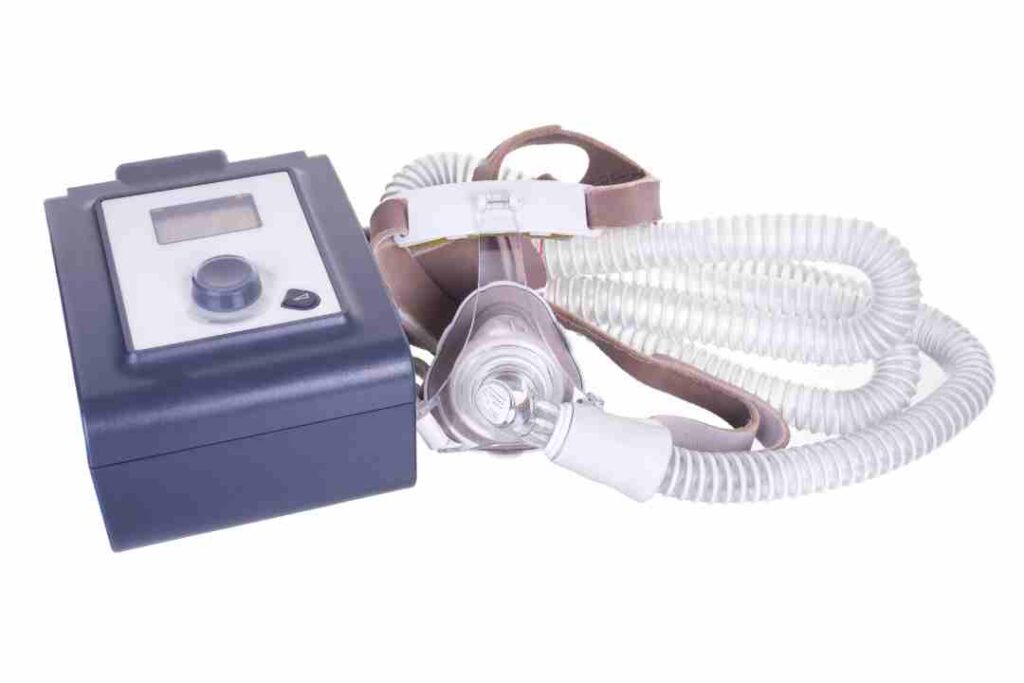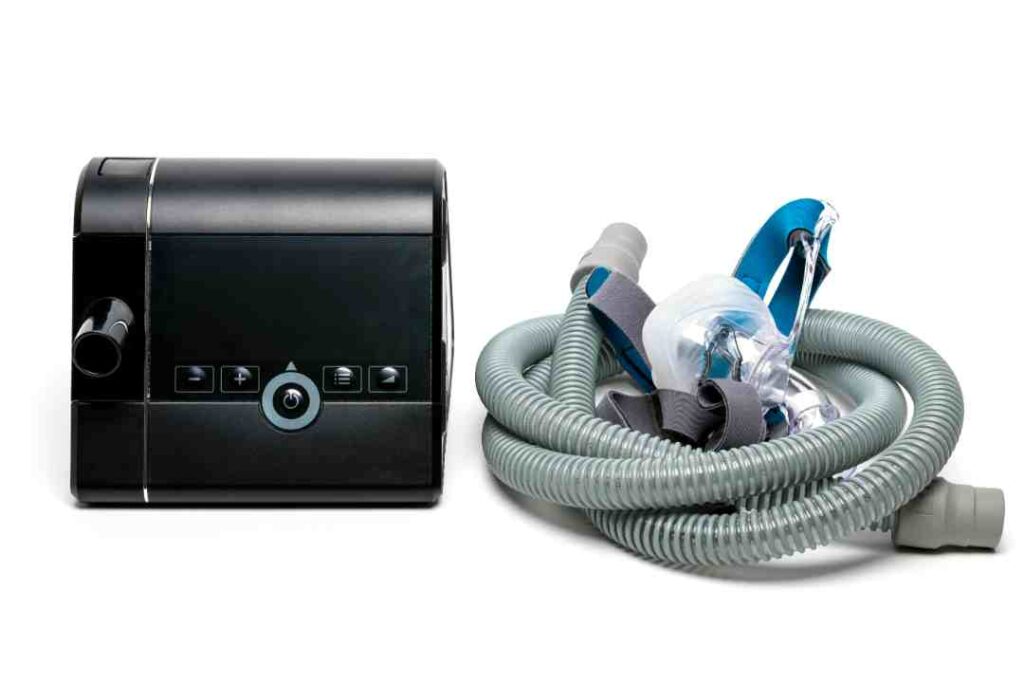Sleep apnea is a sleep disorder that affects millions of people worldwide. It is characterized by pauses in breathing or shallow breathing during sleep, leading to fragmented and restless sleep. The use of sleep apnea machines, also known as continuous positive airway pressure CPAP masks Aaustralia, has been proven to be an effective treatment for improving sleep quality and reducing the symptoms associated with sleep apnea.
Understanding Sleep Apnea
Sleep apnea is a condition that affects millions of people worldwide. It occurs when the airway becomes partially or completely blocked during sleep, leading to interruptions in breathing. These pauses in breathing can last from a few seconds to a minute and can occur multiple times throughout the night.
What is Sleep Apnea?
Sleep apnea is categorized into three types: obstructive sleep apnea, central sleep apnea, and complex sleep apnea syndrome. Obstructive sleep apnea is the most common type and occurs when the muscles in the throat relax, causing the airway to narrow or close. Central sleep apnea, on the other hand, happens when the brain fails to send proper signals to the muscles that control breathing. Lastly, complex sleep apnea syndrome is a combination of both obstructive and central sleep apnea.
Obstructive sleep apnea is often associated with excess weight, obesity, and aging. People with a family history of sleep apnea are also at a higher risk of developing the condition. Other factors, such as smoking, alcohol consumption, and certain medications, can contribute to the development of sleep apnea as well.
Common Symptoms of Sleep Apnea
Recognizing the symptoms of sleep apnea is crucial for early detection and treatment. Some common symptoms include loud snoring, excessive daytime sleepiness, morning headaches, restless sleep, and difficulty concentrating. However, it’s important to note that not everyone who snores has sleep apnea, and not everyone with sleep apnea snores.

It’s not uncommon for individuals with sleep apnea to be unaware of their condition. Often, it is a partner or family member who notices the symptoms and encourages the affected person to seek medical attention. If left untreated, sleep apnea can have serious consequences on overall health and well-being.
The Impact of Sleep Apnea on Quality of Life
Sleep apnea not only affects the quality of sleep but also has a significant impact on daily life. Sleep deprivation caused by sleep apnea can lead to fatigue, irritability, and decreased cognitive function. Individuals with sleep apnea may find it challenging to stay awake during the day, making it difficult to focus at work or school.
Moreover, sleep apnea has been linked to an increased risk of cardiovascular diseases, such as high blood pressure, heart attack, and stroke. Repeated interruptions in breathing can put a strain on the heart and lead to the development or worsening of these conditions. Sleep apnea has also been associated with an increased risk of type 2 diabetes, obesity, and depression.
Fortunately, there are various treatment options available for sleep apnea, ranging from lifestyle changes to medical interventions. Lifestyle changes may include weight loss, regular exercise, avoiding alcohol and sedatives before bed, and sleeping on your side instead of your back. Continuous positive airway pressure (CPAP) therapy is a common medical treatment that involves wearing a mask over the nose or mouth during sleep to deliver a continuous flow of air to keep the airway open.
In conclusion, sleep apnea is a complex and potentially serious sleep disorder that can have a profound impact on a person’s health and quality of life. Recognizing the symptoms and seeking appropriate treatment is essential for managing the condition and improving overall well-being.
The Role of Sleep Apnea Machines
Sleep apnea machines, also known as continuous positive airway pressure (CPAP) machines, play a crucial role in the treatment of sleep apnea. Sleep apnea is a sleep disorder characterized by pauses in breathing or shallow breaths during sleep. These interruptions can occur multiple times throughout the night, leading to poor sleep quality and a range of health issues. Click here to read about ResMed Masks Comparison: Finding the Perfect Match for Your Sleep Apnea Therapy Needs and Preferences.
How Sleep Apnea Machines Work
Sleep apnea machines work by delivering a constant flow of air pressure to the airway, keeping it open during sleep. This prevents the airway from collapsing, allowing for uninterrupted breathing and a restful night’s sleep. The machine consists of a mask that fits over the nose or mouth and is connected to a small device that generates the air pressure. The pressure is carefully calibrated based on the individual’s needs and can be adjusted accordingly.
Different Types of Sleep Apnea Machines
There are several types of sleep apnea machines available, each with its own unique features and benefits. The most common type is the CPAP machine, which delivers a continuous stream of air pressure throughout the night. This constant pressure helps to keep the airway open and prevents apnea episodes. Another type is the BiPAP machine, which delivers two levels of air pressure: a higher level during inhalation and a lower level during exhalation. This can be more comfortable for individuals who have difficulty exhaling against a high pressure.
APAP machines, on the other hand, are designed to automatically adjust the air pressure based on the individual’s breathing patterns. This ensures that the optimal pressure is delivered at all times, regardless of changes in sleep position or airflow. These machines are particularly useful for individuals whose airway obstruction fluctuates throughout the night.
The Importance of Proper Use and Maintenance
Proper use and maintenance of sleep apnea machines are crucial for their effectiveness. It is important to follow the instructions provided by the manufacturer and regularly clean the machine, replace filters, and check for any signs of wear or malfunction. Regular visits to a healthcare professional can also ensure that the machine settings are correctly adjusted for optimal treatment.
In addition to following the manufacturer’s guidelines, there are several other tips to ensure the proper use of sleep apnea machines. It is important to wear the mask properly, ensuring a good seal to prevent air leaks. Adjusting the straps and positioning the mask correctly can help achieve a comfortable fit. It may take some time to get used to wearing the mask, but with patience and persistence, most individuals adapt to it.

Furthermore, it is essential to use the machine consistently and every night, even during travel. Skipping nights or using the machine intermittently can undermine the effectiveness of the treatment. Many sleep apnea machines are portable and come with travel-friendly features, making it easier to continue treatment while on the go.
In conclusion, sleep apnea machines are invaluable tools in the management of sleep apnea. By delivering a constant flow of air pressure, these machines help keep the airway open and ensure uninterrupted breathing during sleep. With proper use, maintenance, and regular follow-up with healthcare professionals, individuals with sleep apnea can experience improved sleep quality and overall well-being.
The Link Between Sleep Apnea Machines and Sleep Quality
Sleep apnea, a common sleep disorder characterized by repeated interruptions in breathing during sleep, can have a significant impact on an individual’s overall well-being and quality of life. Fortunately, scientific studies have consistently shown that the use of sleep apnea machines can greatly improve sleep quality in individuals with this condition.
Scientific Studies Supporting the Connection
Over the years, numerous scientific studies have been conducted to investigate the effectiveness of sleep apnea machines in improving sleep quality. These studies have consistently demonstrated positive outcomes, providing concrete evidence of the link between sleep apnea machines and improved sleep quality.
One study conducted by researchers at a renowned sleep clinic examined a group of individuals with moderate to severe sleep apnea. The participants were provided with sleep apnea machines and were instructed to use them consistently over a period of several weeks. The results showed a significant reduction in the frequency of breathing interruptions during sleep, leading to a more uninterrupted and restful night’s sleep.
In addition to the reduction in breathing interruptions, these studies have also shown improvements in oxygen levels. Sleep apnea often leads to decreased oxygen saturation in the blood, which can have detrimental effects on various bodily functions. However, the use of sleep apnea machines has been found to effectively address this issue, resulting in improved oxygen levels during sleep.
Furthermore, the studies have consistently reported an overall increase in the amount of restful sleep obtained by individuals using sleep apnea machines. Restful sleep is crucial for the body’s rejuvenation and repair processes, and the findings of these studies indicate that sleep apnea machines play a vital role in facilitating this essential aspect of sleep. You can also read about Breathing problems and shortness of breath by visiting https://www.lungandsleep.com.au/breathing-problems-and-shortness-of-breath/
Personal Testimonies of Improved Sleep Quality
While scientific studies provide valuable evidence, personal testimonies from individuals who have experienced the positive effects of sleep apnea machines further reinforce the connection between these devices and improved sleep quality.
Many individuals who use sleep apnea machines have reported a dramatic transformation in their sleep quality and overall well-being. They often describe waking up feeling more refreshed, having increased energy levels throughout the day, and experiencing improvements in cognitive function and mood.
One such individual, John, had been struggling with severe sleep apnea for years. He would wake up multiple times during the night, gasping for air and feeling exhausted. However, after being prescribed a sleep apnea machine and using it consistently, John noticed a remarkable change in his sleep quality. He began waking up feeling refreshed and noticed a significant improvement in his energy levels throughout the day. His concentration and memory also improved, and he found himself in a better mood overall.
These personal testimonies serve as a powerful testament to the effectiveness of sleep apnea machines in improving sleep quality and enhancing overall well-being.
Overcoming Challenges with Sleep Apnea Machines
Common Concerns and How to Address Them
Some individuals may have concerns or difficulties when first using sleep apnea machines. Common concerns include discomfort, mask leakage, or difficulties adjusting to the sensation of continuous airflow. These challenges can often be overcome with proper mask selection, adjustments to machine settings, and patience while adapting to the therapy.
Tips for Adjusting to a Sleep Apnea Machine
Adjusting to a sleep apnea machine may take time and patience. It is important to give yourself time to become familiar with the machine and its settings. Experimenting with different mask styles and sizes can also help find a comfortable fit. Additionally, establishing a consistent bedtime routine and creating a relaxing sleep environment can improve the overall effectiveness of the therapy.
The Future of Sleep Apnea Treatment
Advances in Sleep Apnea Machine Technology
Continuous advancements in sleep apnea machine technology are continuously being made, aiming to improve comfort, portability, and overall effectiveness. Innovations such as smaller and quieter machines, wireless connectivity, and advanced mask designs are being developed to provide individuals with a more user-friendly and customizable treatment experience.
Emerging Treatments and Therapies
Beyond sleep apnea machines, researchers and healthcare professionals are exploring other treatment options and therapies for sleep apnea. These include oral appliances, positional therapy, and surgical interventions. As our understanding of sleep apnea grows, new and innovative approaches to treatment are continually being discovered.
In conclusion, sleep apnea machines play a vital role in improving sleep quality and overall well-being for individuals with sleep apnea. By providing a consistent flow of air pressure to the airway, these machines help prevent interruptions in breathing, resulting in a deeper and more restful sleep. With further advancements in technology and the development of new treatment options, the future holds great promise for enhancing the management of sleep apnea and ensuring better sleep quality for those affected by this sleep disorder.

